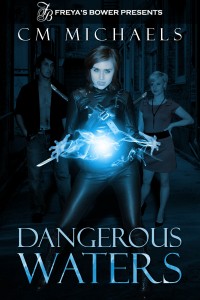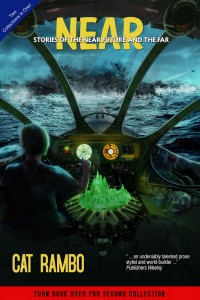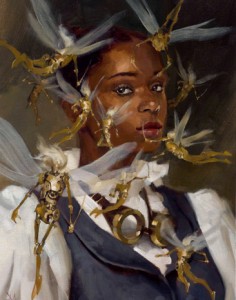I’m going to be experimenting with including some guest content on my blog, primarily authors talking about their books. If you’re interested in participating in that, please drop me a line.

For Emily Waters, a nature-loving, small-town girl with an overprotective father, heading off to Boston University to study conservation biology is a dream come true—until a chance encounter catapults her into a mythical world she’d do anything to escape. The latest victim in a rash of abductions near campus, Emily is brutally attacked before being rescued by a powerful new friend. She survives the ordeal, only to find herself held captive and presented with an impossible choice. While preparing for the unimaginable life she must now embrace clues soon emerge that Emily may not be entirely human, and her physical transformation awakens goddess-like powers that her new family cannot begin to explain. Dealing with her human first love, the not-so-platonic relationship with her coven “sister,†and her new vampire sort-of-boyfriend further complicates matters, not to mention being secretly hunted by the psychopaths who attacked her. And as the only known offspring of a once all-powerful race, the climactic battle is only the beginning of her journey.
In my opinion, the ability to get real-time feedback from people knowledgeable about your genre that you trust explicitly—but who are still willing to offer constructive criticism—is the most helpful tool in a writer’s arsenal.
For a critique group to be successful, each of the conditions summarized above needs to be met.
- Composed of people you trust – I’ve seen a lot of online critique group sites pop up recently. These sites make the formation of groups far easier, but they miss out on one of the most essential requirements for collaborative input to be effective. Trust. I’m not just speaking of the risk that someone you have never met will pilfer your amazing idea for a new book (or even actual chapters), which is all too real. The lack of trust also makes you more defensive and less open to receiving even well intentioned feedback that they share. Selecting a critique group comprised of close friends and relatives alleviates both issues.
- Composed of people knowledgeable in your genre – So you’ve taken the first step and found a group of close friends and relatives who are willing to join your new critique group. That’s wonderful! Are all of them familiar with your genre? If not, I’d suggest that you keep looking. That may sound harsh (especially if they volunteered for your non-paying gig) but if they aren’t fans of the genre the pushback you receive could have as much to do with their dislike of your type of book as with what you are actually writing. Even if they are just uninformed about the genre rather than being biased against it, they still don’t have any benchmark to gauge your book against. Contrast that with someone who has read all the popular series you aspire to emulate. They can give you candid feedback that draws upon a mutual understanding of the essential elements for a book in your genre to be a hit.
- Composed of people willing to offer constructive feedback – This makes the selection of your critique group members far more difficult, as you need to ensure that the relatives and close friends you select are going to be willing to share negative feedback and take you to task. Getting a bunch of “this is great†comments may boost your ego, but it does nothing to improve your novel. No one is inherently excluded—your parents, sister, brother, boyfriend, may make great group members—it just depends on the nature of your relationship. And you also need to be open to receiving constructive feedback from them. If your boyfriend tells you he kept falling asleep during your prologue, as he didn’t see where you were going with your in depth knowledge dump on the Greek pantheon, will you listen to him and make the chapter more focused, or will it start a fight between you? Be honest with yourself. Having people tell us our creations are less than perfect stings. Make sure you select people you will not hold a grudge against.
- Able to provide real time feedback – We all know it’s much easier to make major storyline changes before the entire draft is written, and input on dialogue, narrative voice, syntax and character development received for one chapter can be leveraged as you work on future chapters. So in order to be effective your group needs to meet regularly, once every 1-2 weeks. As an added bonus, meeting frequently also gives you intermediate deadlines to target, since you need to have written something for them to review. Posting the chapters out on a Skydrive a couple days in advance of each meeting will give everyone a chance to read it beforehand and come prepared with their input.
Comment on this post to be entered in a Rafflecopter giveaway
for a $50 Amazon gift certificate. Look for other stops on C.M. Michaels’ blog tour for additional chances to win.
Enjoy this writing advice and want more content like it? Check out the classes Cat gives via the Rambo Academy for Wayward Writers, which offers both on-demand and live online writing classes for fantasy and science fiction writers from Cat and other authors, including Ann Leckie, Seanan McGuire, Fran Wilde and other talents! All classes include three free slots.
If you’re an author or other fantasy and science fiction creative, and want to do a guest blog post, please check out the guest blog post guidelines.






